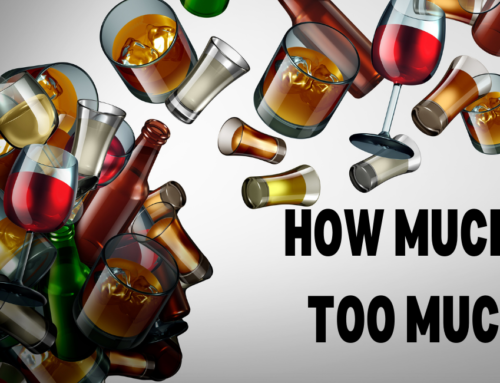I try to imagine what it must be like to be a judge or any attorney who are faced with so many heart, wrenching decisions. I think about the internal conflict of having their own personal views and beliefs that are inconsistent with the laws that they are charged to uphold. I think about the horrendous acts that they must hear about and pictures they must see that are etched within their memories and keep them up at night. I think about the life and death decisions they have to make even though it is the jury that find someone guilty or not. The judge must instruct the attorneys and the jury and hope and pray that they do their due diligence in gathering ALL the evidence and present and interpret it without prejudice.
In 2022, the United Nations Office on Drugs and Crime presented the results of their research on “The impact of Judicial Well-Being on Judges’ Behaviour & Integrity” at the UN Behavioural Science Week 2022. Professor Tali Sharot stated that “the mental state of a judge is crucial. Stress alters the way our brain processes decisions because it impacts the frontal lobe of the brain where decisions are made.” When we are stressed we are not able to make the same kind of decisions that we would make if we were in a place of homeostasis.
There are many things that contribute to the stress but the judges feel there is no time or help to do anything about it. The survey of judges indicated that “76% do not have time to maintain optimal physical and mental well-being. It also showed that 90% regularly experience stress and 90% would appreciate guidance on improving their well-being. “ You can see the whole report HERE
Another research report, “Stress and Resiliency in the U.S. Judiciary” is considered the most comprehensive review of well-being of its kind for the judicial ranks and builds on an ABA 2016 study of lawyer well-being.
Specifically, nearly four of 10 judges reported that their chief stressor stemmed from fatigue and low energy. Also, the survey found that one in five judges met at least one criteria for depressive disorder, such as not having initiative, preoccupation with negative thoughts, work is no longer meaningful, can’t wait for the day’s work to end and depressed mood. You can read the entire report HERE
I have had the privilege of being a corporate trainer for the last 25 years on mental health and substance abuse issues. In the last several years I have had the opportunity to train Wisconsin correctional staff at the prisons, all the chief judges in the state and other judges and staff in northern Wisconsin on dealing with stress in the judicial system. Things have become much more challenging in recent years with staff shortages and threats to law enforcement.
I interviewed Judge Mike Moran from Wausau, Wisconsin and he said many things have caused the increase in stress that has led to the reported mental health crises among judicial workers. One challenge that has impacted Judge Moran is dealing with his colleague and friend Judge John Roemer, a Circuit Court Judge who was murdered in June of 2022 by Douglas K. Uhde who Judge Roemer had sentenced years earlier after Uhde pled guilty of armed robbery and other charges. Several other “targets” were on Uhde’s list including Governors Tony Evers, and Gretchen Whitmore and Minority Leader Mitch McConnell. The fear of these kinds of things happening to judicial workers is undoubtedly leading to an increased level of stress and need for better ways of coping and staying safe.
After watching the violence at the capital on January 6th, 2021 and the many mass shootings, violence and threats towards government officials by other leaders in our country who are sworn to protect and uphold the laws of our land, it is understandable why law enforcement leaders are stressed. All stress is fear based and it is not irrational to have some fear about the instability of our nation.
We also all have private lives, and perhaps troubled relationships, health issues or other challenges. Many of us have learned ways of coping that have turned into an overindulgence that just makes matters worse. Alcohol, drugs or some other addictive habit that may not serve us well can turn into health issues, mental instability, financial troubles and even legal consequences. Living in chronic stress causes, severe anxiety and depression, and the brain becomes chemically imbalanced which leads to a host of other problems, including headaches, intestinal, problems, high blood pressure, heart problems, and so much more.
We are lucky to have so many attorneys, who have chosen to go into this profession, and many of them become judges who take the responsibility and risk to make decisions that will in one way, or another, for ever change, the lives of those who are accused and how it changes, their families, friends, and communities, and even the nation. As we’ve watched in recent years, the entire world seems to be following after the violent ways that America has demonstrated when things don’t go the way that they want them to.
We all need hope and the good news is that we are born with neuroplasticity, which means that we can change the way our brains function. We can literally create new neural paths and influence the chemical neurotransmitters that send signals to every part of our bodies. We do have some control over whether or not we live in the helpless, hopeless feeling of anxiety and/or depression or rather we go through life feeling peaceful and joyful. But how?
Here are just a few of the tools that we can use and employ to minimize stress, depression, and even trauma.
- Get in touch with who you are what you believe your morals and values and integrity. Many of us find ourselves, believing certain things and acting in certain ways because that’s what we observed growing up. If you have a spiritual belief get connected with the God of your understanding and make your religion your own not your parents or somebody else’s. Search your own hurt about racism and political conflict and why are you believe what you believe and how we should express those beliefs. Is your conscious is clear if it’s not the incongruence is going to call stress
- Consider using this simplicity of the three Gs every morning and night. #1 is GRATITUDE. The first year that the nonprofit I started brought homeless people into our first sober house. I asked them what was on the top of their list that they wanted for Christmas and they said toilet paper. The second thing was underwear. When is the last time you had toilet paper on your gratitude list. Make it big to start with and then on days when you can’t think one thing to be grateful for you can go back over your list
- The 2nd G is What are you GOOD at? There will be days when you come home and feel like a complete failure. Nothing goes right and you made mistakes or at least you felt like you did and there’s nothing you can do about it. Start by making a list of everything you can think of that you are good at that you have been good at in the past the people say that you’re good at. Studies show that we need 12 positives for every negative to balance self-esteem. Think about that. We wonder why drug addicts and alcoholics and homeless people don’t feel good enough about them to make changes. When’s the last time you found some good in them and let them know that you were proud of them for showing up and being respectful and turning their phones off and not wearing their hat in the quart room. The third G is Some people have never had modeling to learn such basic things so when they are doing them it’s a big deal and it’s a big deal that you are doing what you’re doing
- The 3rd of the 3 G’s is GOALS. God knows you have plenty of them the minute you walk into work and you really don’t have much choice in the matter or so it seems but you can have the goal to be mindful of your thoughts because your thoughts cause your feelings and your feelings cause your behavior, if you think someone has disrespected you, you’re going to feel upset and perhaps angry and your decisions may not be as unbiased as they are meant to be. We need to constantly be checking ourselves about our thoughts to do this we need to do self-care, and perhaps step away for a few minutes even if it requires silence while you take a few if you practice these three Gs in the morning before you even get out of bed at least the gratitude part you will be starting on a much better mindset. It’s best if you do them with somebody even if you have to text them to a friend or colleague, or family member accountability is good today it may be you’re not going to drink after work or you’re going to eat a healthy lunch or you’re going to take time to meditate and exercise.
- To wrap up your day and help you get to sleep, don’t slam a few drinks or get wound up watching TV and social media. That won’t help in the long run. Instead, take time away from the screen and do the three Gs again to reflect on your day. Clean the slate of the negativity and focus on what you’re grateful for what you did good and what goals you did meet that make you feel good. It is crucial that you go to bed at night with a clear happy mind. You can reroute the neural pathways and get out of what I call the muddy rut of negativity.
I have just scratched the surface on strategies to overcome stress but this has been proven in every study out there to be effective in lowering cortisol levels and improving mental health. If you need a speaker for your organization or could use a confidential listening ear and don’t want insurance involved in your mental health issues just hire me as your coach. I would be happy to offer a complimentary 1st session to see how I can help you. Just click on the link to get started! LIFE COACHING

 Linda Larson Schlitz is an International Speaker, Best Selling Author and Corporate Trainer providing HOPE to families, schools, businesses and individuals who are ready to initiate change to make this world a better place. She has a Masters Degree in Counseling and over 30 years experience developing creative programs and services for youth and adults in churches, schools, job centers and the community. She is the owner of Purpose Driven Recovery Academy LLC and Faucet of HOPE Ministries LLC. She has received the Red Cross Hometown Hero and Athena Leadership Award, and has received commendations from Wausau Mayor, Jim Tipple, the Secretary of Workforce Development Reggie Newson and Governor Scott Walker for hers exemplary work with the citizens of Wisconsin and for being an example for others to follow.
Linda Larson Schlitz is an International Speaker, Best Selling Author and Corporate Trainer providing HOPE to families, schools, businesses and individuals who are ready to initiate change to make this world a better place. She has a Masters Degree in Counseling and over 30 years experience developing creative programs and services for youth and adults in churches, schools, job centers and the community. She is the owner of Purpose Driven Recovery Academy LLC and Faucet of HOPE Ministries LLC. She has received the Red Cross Hometown Hero and Athena Leadership Award, and has received commendations from Wausau Mayor, Jim Tipple, the Secretary of Workforce Development Reggie Newson and Governor Scott Walker for hers exemplary work with the citizens of Wisconsin and for being an example for others to follow. 


